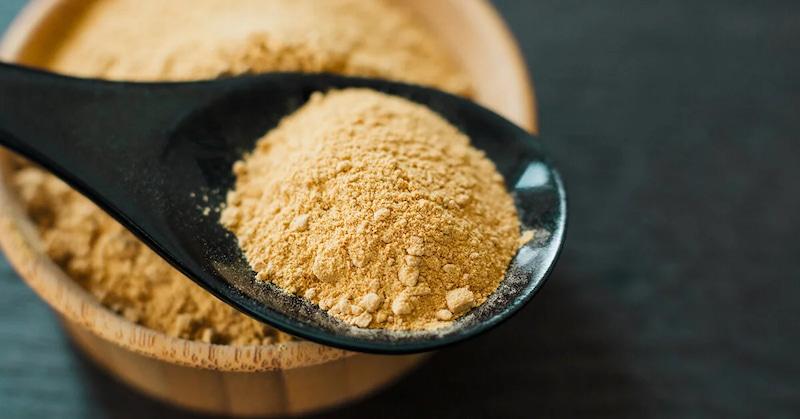Maca Vs Caffeine: Which Is Better For Sustainable Energy?
Maca and caffeine are both popular substances known for their potential to provide energy boosts. While caffeine is widely recognized and consumed worldwide, maca is gaining attention as a natural alternative. In comparing the two, it’s important to consider their effects on energy levels, sustainability, and potential side effects. This article aims to explore the benefits and drawbacks of both maca and caffeine, focusing on their suitability for sustainable energy.
How long for Maca to kick in? The time it takes for maca to kick in and produce noticeable effects can vary depending on several factors. Generally, it may take a few weeks of consistent daily use before individuals start experiencing the full benefits of maca supplementation.
Maca :
Maca is a plant that belongs to the Brassicaceae family and is native to the high-altitude regions of the Andes in Peru. It is primarily cultivated for its root, which has been used for centuries in traditional medicine and as a food source.
The maca root is known for its potential health benefits and is often marketed as a natural supplement. It is rich in various nutrients, including vitamins (such as vitamin C, B vitamins, and vitamin E), minerals (such as iron, potassium, and calcium), and amino acids. Maca also contains unique compounds called macaenes and macamides, which are believed to contribute to its effects.
Caffeine:
Caffeine is an organic stimulator that belongs to the xanthines class of chemicals. It is found in varying quantities in the seeds, leaves, and fruits of some plants, most notably coffee beans, tea leaves, cocoa beans, and kola nuts. Caffeine is also artificially produced and added to certain beverages, foods, and medications.
Caffeine is widely consumed around the world and is known for its stimulating effects on the central nervous system. It works by blocking the action of adenosine, a neurotransmitter that promotes relaxation and sleep. By inhibiting adenosine, caffeine increases alertness, reduces fatigue, and improves focus and concentration.

Which Is Better For Sustainable Energy?
Caffeine, a naturally occurring stimulant, is found in various beverages like coffee, tea, and energy drinks. It acts by blocking adenosine receptors in the brain, which helps increase alertness and reduce fatigue. Many people rely on caffeine to kickstart their day or combat midday slumps. Its effects are often immediate, making it a convenient option for a quick energy boost.
However, caffeine’s rapid effects can also lead to crashes and jitters once its stimulating effects wear off. This can create a cycle of dependence, with individuals needing higher doses to achieve the same level of alertness. Moreover, consuming too much caffeine can disrupt sleep patterns, leading to long-term fatigue and dependence on the substance. Additionally, excessive caffeine consumption can cause other adverse effects, such as increased heart rate, anxiety, and digestive issues.
Maca, on the other hand, is a Peruvian Andean root vegetable. For millennia, it has been utilized for its possible health advantages, such as enhanced vitality and stamina. Maca functions by assisting the hormonal system, which controls the production of hormones in the body. It helps to balance the levels of hormones, which can lead to increased energy and overall well-being.
Sustainable Energy-promoting Effects
One of the notable advantages of maca is its sustainable energy-promoting effects. Unlike caffeine, maca provides a more gradual and sustained increase in energy levels. It does not cause the same crashes and jitters associated with caffeine consumption. Maca also does not interfere with sleep patterns, making it a suitable option for individuals seeking long-lasting energy without compromising their rest.
Another feature that distinguishes maca is its adaptogenic characteristics. Adaptogens are naturally occurring chemicals that assist the body in adapting to stress and maintaining balance. Maca is classified as an adaptogen, which means it boosts the body’s endurance and ability to deal with diverse stimuli. This can be especially beneficial for people who are tired as a result of physical or emotional stress.
Low Risk of Side Effects
Furthermore, maca is generally well-tolerated and has a low risk of side effects. However, it’s worth noting that individuals with certain conditions, such as thyroid issues, should exercise caution and consult with a healthcare professional before incorporating maca into their routine. Additionally, as with any dietary supplement, it’s important to choose a reputable source to ensure product quality and purity.
When it comes to sustainability, maca offers a favorable advantage over caffeine. Caffeine production, particularly in the form of coffee, has raised concerns about deforestation, habitat destruction, and the extensive use of chemical fertilizers and pesticides. In contrast, maca is a resilient crop that can thrive in harsh climates, reducing the need for intensive agricultural practices. Its cultivation also promotes biodiversity and supports local communities in the Andean region.
Final Words:
Both maca and caffeine have their own set of benefits and drawbacks concerning sustainable energy. Caffeine provides a quick and immediate energy boost, but it can lead to crashes, dependence, and potential side effects. On the other hand, maca offers a gradual and sustained increase in energy levels without the negative consequences associated with caffeine. It also possesses adaptogenic properties and is generally well-tolerated.
Also, read this: https://wpostnews.com/supply-chain-analytics-market-trends-growth-share-size-and-forecast-2022-2027/



